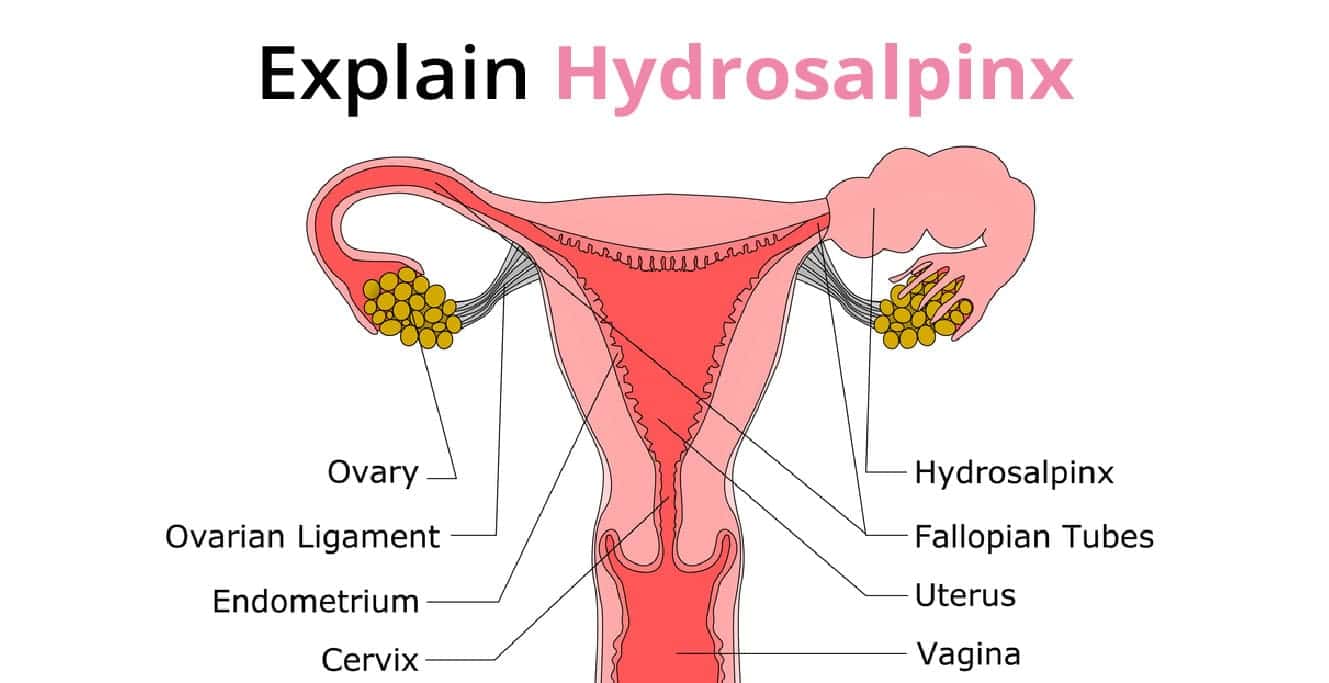What is Semen Analysis?
- Published on April 01, 2022

Male infertility accounts to about 50% of the total infertility cases in India. Despite its alarmingly high incidence, male infertility issues are not widely discussed. It is primarily because of the gigantic stigma around male reproductive health that poor fertility in men means a lack of manhood. This misconception puts their masculinity under question due to which fewer men seek medical help for their reproductive health issues. A test, as simple as a semen analysis, can help in timely and effective treatment.
It should be noted that infertility, like any other medical condition, is just a health concern. It does not define or undermine the vigour of any individual. With the growth of Assisted Reproductive Technology (ART) methods, awareness about male infertility issues is also rising. Today, numerous diagnostic and therapeutic methods are available to cure male infertility with complete confidentiality.
The following article shines light on one such diagnostic technique – semen analysis test. In this article, with insights from Dr. Vivek, leading fertility specialist at Birla Fertility & IVF, we will explore everything you need to know about semen analysis and how to increase semen quantity naturally.
Table of Contents
What is Semen Analysis?
Before we find out what a semen analysis is, let us study the basic biology behind male reproductive system by understanding what is semen.
Semen is the thick, whitish fluid secreted by a man’s body (tip of the penis) when he ejaculates. The semen mainly contains three components –
- Sperm
- Fluids
- Proteins, vitamins & minerals
Sperm cells are healthy male reproductive cells containing genetic material. The sperm cells fertilise with the mature egg in a female’s body and lead to the formation of embryos, hence helps a couple achieve a pregnancy.
A low sperm count can disrupt the process of fertilisation and contributes to male factor infertility.
A semen analysis is a male fertility test that is done to analyse the quantity and quality of a man’s sperm in his semen sample. It is also known as the sperm count test.
Semen analysis test is performed under an advanced microscope in a lab and allows your fertility doctor to examine your semen for its count, motility (activity), shape and overall health.
How Semen is Produced?
A man’s reproductive system is designed to produce, store and transport sperm. The male reproductive organs are on both the interior and exterior of the pelvic cavity, including the testicles, the duct system: epididymis and vas deferens (sperm duct), and the accessory glands: seminal vesicles and prostate gland and the penis.
The production of semen occurs in the testicles. There is a system of tiny tubes in the testicles called seminiferous tubules. They house the germ cells that hormones, including testosterone (the male sex hormone), cause to turn into sperm. The germ cells divide and change until they resemble tadpoles with a head and short tail.
The tail pushes the sperm into the epididymis. The sperm travel through the epididymis for around five weeks completing their development. After that, the sperm moves to the vas deferens. When a man is stimulated by sexual activity, the sperm are mixed with seminal fluid (a whitish liquid produced by the seminal vesicles and the prostate gland) from semen. As a result of the stimulation, the semen is pushed out of the penis (ejaculated) through the urethra.
Who Needs a Semen Analysis?
Most men are indicated to undergo a semen analysis test when they present at a fertility clinic with the complaint of inability to help their female partner conceive.
Semen analysis is indicated in the following conditions:
- Male infertility – Infertility is defined as the inability to achieve conception after more than 12 months of unprotected intercourse. When a couple fails to get pregnant after a year of trying, they are identified as experiencing infertility issues. In such cases, your fertility doctor will indicate a semen analysis test to figure out the cause of infertility.
- Vasectomy follow up – A vasectomy is a surgical procedure that blocks the tube responsible for transportation of sperm in the semen. After this surgery is done, your doctor may ask you to undergo a semen analysis to ensure that the vasectomy has been successful.
What Happens During a Semen Analysis?
A semen analysis is a diagnostic, non-invasive test. For this test, the male partner is asked to submit a collection of the semen sample.
There are several ways to retrieve a semen sample including masturbation or intercourse using a special type of condom. Your fertility doctor will ask you to ejaculate and submit the semen sample in a container cup.
The aspirated semen sample is then sent to the fertility lab for accuracy-driven analysis. The sample is kept in a carefully monitored environment under optimal temperatures. Your results may differ if a semen sample is too warm or too cold.
Preparing for a Semen Analysis
While preparing for semen analysis, you will be asked to abstain from any sexual activity from nearly 2-7 days. This is to ensure that your sperm counts are at the highest at the time of analysis.
You should, however, do not prolong ejaculation for more than 2 weeks as this delay can also affect your test results since the sperm is less active.
You are advised not to consume alcohol before submitting the ejaculate for semen analysis.
You should inform your doctor about any medication you might be taking, especially testosterone supplements.
You may be asked to submit more than one sample within 2-3 weeks time. Since a man’s semen sample may vary in characteristics, having multiple samples allow your fertility doctor to provide precise details and results.
What are the Risks Related to Semen Analysis?
Semen analysis is a safe test. It does not have any potential risk factors.
You should ensure that you are in good health (not ill and stressed) while submitting the sample.
What does the Semen Analysis Report Mean?
For each individual, the result of a semen analysis report would have a different interpretation. The semen analysis normal report would vary depending on the purpose or indication of the test.
If the semen analysis is indicated to test vasectomy success, normal test results would show zero sperm count or very few moving sperm cells. On the other hand, abnormal test results would mean high numbers of moving or non-moving sperm.
If it is indicated to test infertility, the semen analysis normal report is drawn based on the following factors:
- pH level
- Semen volume
- Sperm concentration
- Sperm morphology
- Sperm motility
- Vitality
- White blood cells
Semen Analysis Test Results
The above-mentioned characteristics are tested against expected values to examine the results of semen analysis.
- Sperm concentration – As per the World Health Organisation (WHO), your sperm count should be at least 15 million sperm per millilitre of semen.
- Sperm motility – Your sperm motility (activity) should be 50%, meaning that at least half of your sperm cells should be active.
- Sperm morphology – The shape and size of the sperm (morphology) are also analysed. Research suggests that at least 4% of your sperm cells should be normally shaped.
- Semen volume – Your fertility doctor will also test if you are able to produce enough semen. Ideally, you should be able to ejaculate at least 1.5 millimetres of semen.
- pH level – Your semen should not be too acidic. The pH level of your semen sample should be between 7.1 to 8.0.
- Liquefaction – Normally, semen comes out as a thick ejaculate and later becomes liquid. The time taken for the semen to become thin in a liquid form is called liquefaction time. Liquefaction time is ideally 20 minutes.
- Semen fructose – Semen analysis also measures semen fructose levels which are contributed by seminal vesicles. If no sperm is found in the semen, fructose levels are checked to identify obstructions.
- Appearance – Semen fluid is usually greyish and opalescent. If your semen sample has a red tint, it indicates the presence of blood while a yellow-tinted sample may indicate jaundice.
What does an Abnormal Semen Analysis Report Indicate?
An abnormal semen analysis report indicates a poor chance of getting the female partner pregnant. However, it should be noted that a semen analysis is not the only factor in evaluating male factor infertility.
Abnormal semen analysis reports may indicate infertility, infection, hormonal imbalance, underlying diseases (diabetes), and genetic defects.
Semen analysis results also vary on the individual’s age and overall health.
Your fertility doctor will indicate additional testing and screening to confirm or rule out other conditions including:
- Blockages preventing the release of sperm into semen
- Infection
- Low sperm count
- Low testosterone levels
- Hormonal difficulties
- Side effects of certain medication
If you receive abnormal semen analysis report, your fertility doctor may recommend additional tests including:
- Sperm antibodies
- Sperm penetration assay
- Hemizona assay test
- Cervical mucus penetration test
How to Increase Semen Quantity Naturally?
If you receive abnormal semen analysis results that indicate low sperm count, you may want to quickly resolve this issue. There are some home remedies and handy tips you can use to boost your sperm count.
Here’s how to increase semen quantity naturally:
- Exercise regularly – Doing some form of physical activity each day for about 30-40 minutes can help boost testosterone production and lead to an increased sperm count.
- Avoid or quit smoking – Smoking cigarettes negatively impacts your fertility by reducing the sperm count.
- Drink in moderation – Alcohol consumption also hinders your fertility by affecting your sperm health. Avoid heavy drinking or drink in moderation.
- Consider fenugreek – Fenugreek supplements are known to promote sperm quality and sperm count.
- Enough Vitamin D – Research suggests that increasing your intake of Vitamin D can also boost sperm health.
- Add antioxidants to your diet – Antioxidants are popular for their ability to deactivate compounds that contribute to cell damage. Eating antioxidant-rich foods can boost sperm production.
- Know your fats – You should cut down on unhealthy fats and increase your consumption of healthy fats.
- Have a nutrient dense diet – Increase your intake of diverse nutrients including folate, zinc, vitamins and minerals.
The Concluding Note
Semen analysis is an advanced diagnostic test that allows your fertility doctor to analyse the quantity and quality of the semen. When a man is unable to help the female partner achieve pregnancy, a semen analysis test can help in detecting the underlying cause of male factor infertility.
If you are struggling with conception, meet Dr. Vivek at Birla Fertility & IVF for personalised fertility care and guidance.
FAQs:
- What is the normal sperm count to get pregnant?
The normal sperm count in a single ejaculate should contain at least 15 million sperm per millilitre. If your sperm count is lower than the expected number, you may be experiencing a male factor infertility issue.
- How long do sperm analysis results take?
Sperm analysis test report will take a few days to arrive. You may be asked to submit more than one semen sample for precise analysis.
- Can a man with zero sperm count get a woman pregnant?
Men with zero sperm count can seek fertility treatments and Assisted Reproductive Technology (ART) methods to get a woman pregnant. Common methods include fertility medication such as hormone inducing medicines and surgery.
- How do you know if you have good sperm?
You have good sperm cells if you have a sperm count of about 15 million or more for every millilitre (mL) and good sperm motility and morphology of about 50% of sperm cells.
- What time of day is the highest sperm count?
Sperm count is highest in the morning due to prolonged abstinence.
- Is a home sperm test useful?
Yes, a home sperm test can be helpful for some patients. However, the results are limited compared to lab test results. Lab tests offer a detailed diagnosis and the root cause of the condition.
- What is the minimum sperm motility required for IVF?
Despite the fact that pregnancies can be achieved with lower parameters, IVF or insemination therapy requires at least 10 x 10(6) spermatozoa/ml, of which at least 30% are motile and 15% have progressive motility. At least 20% of the sperms should have regular shape and size.
Related Posts
Written by:
Dr. Vivek P Kakkad
Consultant
With over 10 years of clinical experience, Dr. Vivek P. Kakkad is an expert in the field of reproductive medicine and surgery. With a strong focus on providing patient-centric and compassionate care, he is also a trained professional in Andrology from a globally renowned university. He has also secured one of the top 3 positions in AIIMS DM Reproductive Medicine and achieved All India rank 14 in NEET-SS.
Ahmedabad, Gujrat
Our Services
Fertility Treatments
Problems with fertility are both emotionally and medically challenging. At Birla Fertility & IVF, we focus on providing you with supportive, personalized care at every step of your journey towards becoming a parent.Male Infertility
Male factor infertility accounts for almost 40%-50% of all infertility cases. Decreased sperm function can be the result of genetic, lifestyle, medical or environmental factors. Fortunately, most causes of male factor infertility can be easily diagnosed and treated.We offer a comprehensive range of sperm retrieval procedures and treatments for couples with male factor infertility or sexual dysfunction.




































